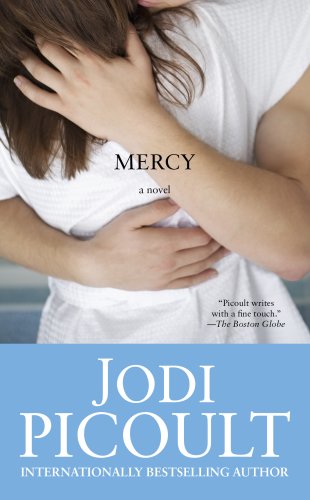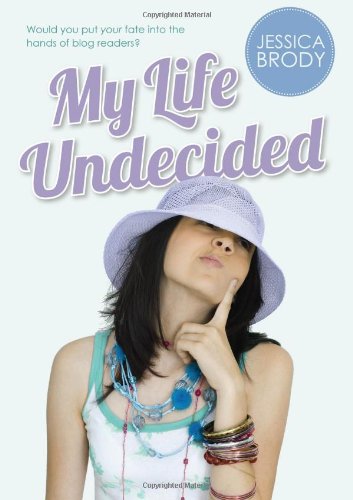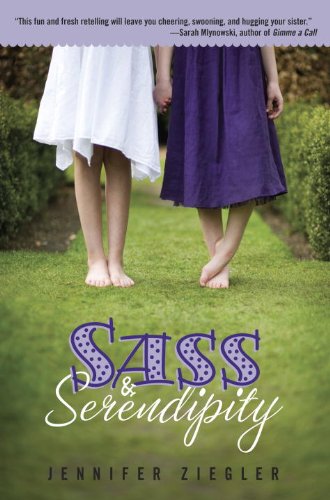SCENES.
1. Best First Chapter: The first chapter of Across the Universe hooked me like no other. So nail-bitey and scary and visceral and intriguing all at once. I kind of just want to reread that first chapter a couple times; forget the rest of the book, just give me the first chapter and I'll be a happy camper.
2. Best Climactic Scene: Again, it seems awkward and weird to award this category to Leverage, but there you have it. The pivotal scene in this book was horribly gruesome, disturbing, on-the-edge-of-your-seat terrifying, and yet... and yet I've never cheered harder for a book than when I read the sentence "Kurt Brodsky goes apeshit." Best. Sentence. Ever.
3. Best Ending: Other Words for Love. Somehow this ending just hit me. It felt calm and satisfying and right and as someone who identified so much with Ari, I absolutely loved it. I talk about this book less than I do other books, but it's safe to say that you should probably go out and read it. I mean, just take a look at that cover/title combo!
4. Best Plot Twist/Revelation: Popular, hands down. Go grab yourself a copy, read it, and then read it again to catch everything you didn't catch the first time around.
5. Most Disturbing Scene: THAT ONE SCENE IN LEVERAGE. I mean, no contest. You wouldn't think it's possible to read a book with your eyes shielded, but somehow that's how I read that scene. Completely freaked out, totally angry and anxious and disturbed.
6. Best Kiss Award: So probably in adult fiction writers worry about writing sex scenes, but in YA it's all about kissing scenes and somehow the truth or dare kiss in My Life Undecided was kind of weird and awkward and sweet at the same time. (Also it's the only one other than one moment from Anna & the French Kiss that comes to mind.)
7. Best Swoonworthy Moment: I'm just not a swoony kind of girl because honestly no scenes are coming to mind here. Not even the ones that probably are swoony and what not. It's just kind of... meh. SO INSERT YOUR FAVORITE SWOONWORTHY MOMENT HERE!!! (And then tell me what it is.)
8. Biggest Nail-Biting Moment: Again I have to go with Leverage and there were so many moments, but especially the one where Kurt is looking for his cellphone and then one near the end of the novel.
9. Most HIlarious Scene: I don't have any one particular scene in mind, but it was definitely one from Flirt Club. There's a line (though not a whole scene) where one of the character's dad comes outside and shouts "No kisses for cads!" that just had me laughing like crazy. There were quite a few moments like that, actually.
RANDOM.
1. Favorite First Sentence: This is an incredibly close one, but I think I'm going to have to go with the first sentence of Imaginary Girls (with Like Mandarin as a runner-up). There's just something so great about the line that tells of a promise from Chloe's older sister.
2. Favorite Book Title: There are so many book titles I've loved this year and I'm finding it a bit impossible to choose one favorite. If I must, though, then I think I have to go with The Kid Table. There's something really wonderful about a simple title that can bring up so many memories, that can conjure up such a picture of the book without even knowing what it's about. Love it.

3. Favorite Reading Experience: Remember that time when I gave up blogging because I had a very strong idea (for very good reasons) that I couldn't both review books and attempt to have my own published? It was a horrible month or so. I felt depressed about the fact that my writing wasn't going anywhere, upset that I couldn't continue in this hobby that I loved, and all around just pretty crappy about the state of affairs of my life. So I figured I'd read a book, just any book I'd been looking forward to, and maybe even if it didn't cheer me up it might be a diversion for a little while. The book I chose was Where She Went and it was the best afternoon and evening I've spent reading in so, so long. The book was amazing and emotional and with my own emotions already a mess it fit me perfectly, not to mention that I have such immense respect and admiration for Gayle Forman. This book was enjoyable and incredible and inspired me to persevere in my own writing at a time when I was really having a tough go of it.

4. Book With the Best Food in It: Oh, this is a toughie. One book has tons of descriptions of delicious French treats and the other has... a diner in the middle of the night, which happens to be right up my alley. However, this category is about food, not atmosphere, so I have to go with Anna & the French Kiss for making me crave croissants and hot chocolate like nothing else.
5. Book With the Most Real/Sensual Weather: I have to go with Like Mandarin on this one for one simple reason: the wind. My goodness the wind. The descriptions of the wind here brought me right back to my hometown where, I kid you not, the wind at one point or another: pushed me off of the road and into a ditch as I was walking home from school, lifted poly carts into the air, knocked over full poly carts, and lifted our mailbox out of the ground and carried it down the driveway. And, um, made our two-story house shake.
6. Most Embarrassing Book Cover: Invincible Summer. For one thing the first time I saw this it took me forever to figure out which end was which (I still get confused, honestly), and for another I just feel weird about carrying around a super-confusing girl-in-a-bikini cover. Especially since, apart from the beach aspect, it really has nothing to do wit the book.
7. Can't Believe I Waited This Long to Read the Book: Speak, obviously.
& with this we come to the end of the Faves of 2011 (so far!) survey. It's been ten tons of fun and here are links to parts
one (the books!) and
two (the characters!) if you're so inclined.















































